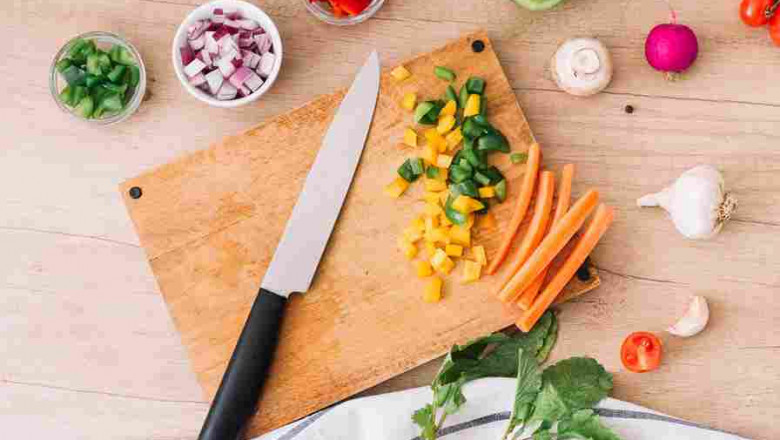views
Cleaning and Caring for Your Knife Set the Right Way
A quality knife set is one of the most important investments in any kitchen. Whether you're a home cook or a professional chef, taking proper care of your knives not only ensures safety and efficiency but also extends the life of the blades. Neglecting basic maintenance can lead to dull edges, rust, and damaged handles. To get the most out of your knife set, it’s essential to clean and care for them the right way. Here’s a simple, professional guide to maintaining your kitchen knives.
1. Clean Knives Immediately After Use
The first and most important step in caring for your knife set is to clean each knife right after using it. This prevents food residue from hardening on the blade and reduces the risk of rust or staining. It’s best to wash your knives by hand with warm water and a mild dish soap. Use a soft sponge or cloth to gently wipe down the blade and handle.
Avoid soaking knives in water for extended periods, especially those with wooden handles, as this can cause the handles to crack or warp over time. Once cleaned, dry the knife immediately with a clean, soft towel to prevent water spots and corrosion.
2. Never Use the Dishwasher
Dishwashers may be convenient, but they are not suitable for cleaning knives. The high heat and strong detergents can damage both the blade and the handle. Additionally, when knives knock against other utensils during a wash cycle, the edges can become dull or chipped. Hand washing may take a few extra minutes, but it goes a long way in preserving the quality of your knife set.
3. Store Knives Properly
Proper storage plays a significant role in maintaining the sharpness and condition of your knives. Storing knives loosely in a drawer can lead to nicks and dullness due to constant contact with other utensils. Instead, consider using a knife block, a magnetic strip on the wall, or a knife drawer insert. Each of these options keeps the blades protected and easily accessible, while also ensuring safety in the kitchen.
If you're storing knives in a drawer temporarily, use blade guards or sheaths to prevent damage.
4. Use the Right Cutting Surface
The surface you use to cut food has a direct impact on your knives. Hard surfaces such as glass, ceramic, or marble can dull or chip your knife blades quickly. Instead, opt for softer surfaces like wood or high-quality plastic cutting boards. These materials are gentle on the blades and provide a stable cutting surface, which also reduces the risk of accidents.
Regularly cleaning and sanitizing your cutting board is also important to maintain hygiene in the kitchen.
5. Sharpen and Hone Regularly
Over time, even the best knives will begin to lose their sharpness. To maintain peak performance, it's important to sharpen your knives as needed. Depending on usage, this could mean sharpening them every few months or more often if used daily. A whetstone or a professional sharpening service is ideal for sharpening knives properly.
In addition to sharpening, honing your knives regularly can help maintain their edge between sharpenings. A honing steel realigns the blade’s edge, keeping it straight and effective. Honing should be done every few uses to ensure your knives remain in good working condition.
6. Handle with Care
Always handle knives with care to avoid damaging them. Avoid using knives to cut frozen foods or bones unless the knife is specifically designed for that purpose. Do not use knives to open cans, pry open jars, or perform other tasks they're not intended for, as this can bend or break the blade.
Also, be mindful of how you place knives in the sink or on countertops. Never toss them carelessly, as this can lead to chipped edges and safety hazards.
7. Oil Wooden Handles and Carbon Steel Blades
If your knife set includes wooden handles or carbon steel blades, an extra step in maintenance is required. Wooden handles should be oiled occasionally using food-safe mineral oil to prevent drying or cracking. Carbon steel blades, while excellent in performance, are more prone to rust than stainless steel. Applying a light coating of oil after cleaning helps protect the metal from moisture and corrosion.
Conclusion
Caring for your knife set doesn’t have to be complicated. With a few simple habits—cleaning after each use, proper storage, careful handling, and regular sharpening—you can keep your knives in excellent condition for years. By treating your knife set with respect and attention, you’ll not only preserve a valuable kitchen tool but also improve your cooking experience every day.
Read more blogs on bbb.reviewsandcomplaints.org
Download lifesmile application from app and play store














Comments
0 comment